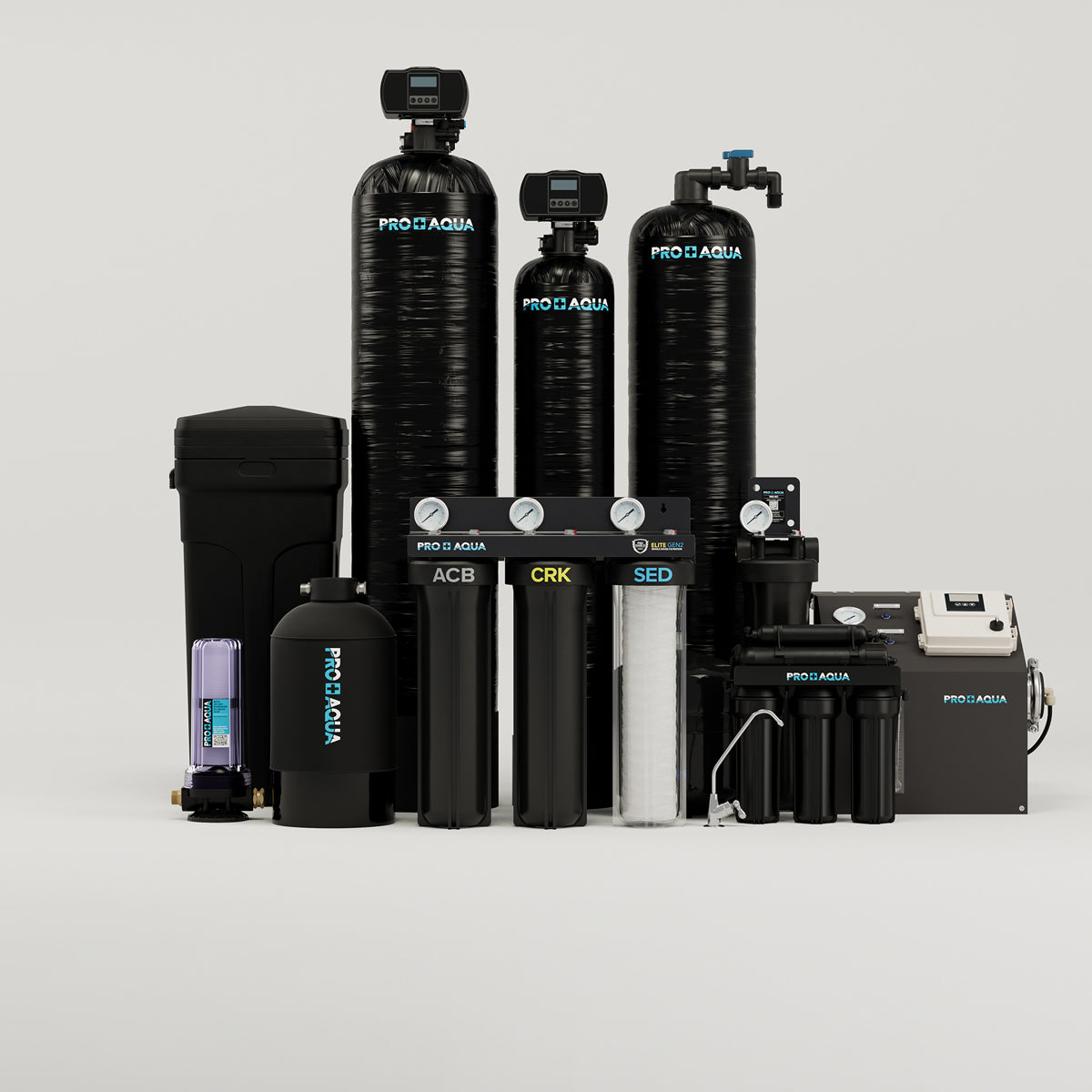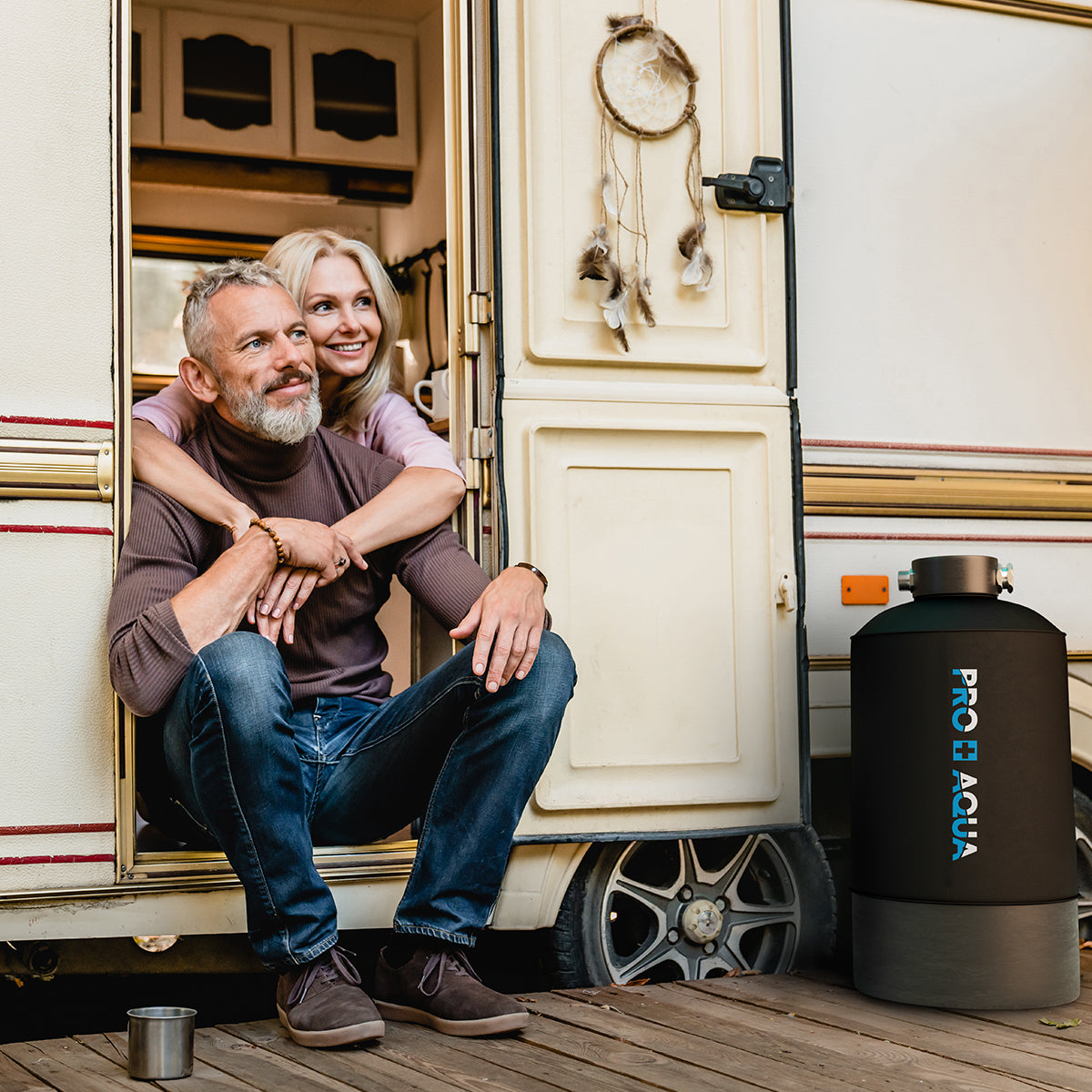ProAqua Blog-Top Solutions for Well Water Problems
With over 15% -- about 43 million people -- of the United States population receiving their drinking water from private wells, many people have experienced a range of problems with their water supply. Turning on the household tap to discover foul-smelling, cloudy, or stained water can be a source of concern and points to problems with the well and water supply. It is reassuring to learn, then, that many common well water problems can be solved. In this guide, we will explore common well water problems and the solutions used to correct them.
Problem #1: Hard Water
As much as 85% of all drinking water supplies in the United States is classified as “hard” water, or water with high levels of dissolved minerals. Hard water can be found in municipal supplies as well as privately-dug or drilled well systems. Minerals in hard water include calcium and magnesium carbonates as well as sulfates.
How do you know if you have hard water? These symptoms can reveal the answer:
- Discolorations of clothing after going through the washing machine.
- Spotting and cloudiness of dishware and glasses.
- Stains in sinks, bathtubs, and toilets.
- Unpleasant odors or flavors in drinking water.
- Excessive use of soaps, shampoos, and detergents to achieve satisfactory cleaning results.
- Whitish spots on plumbing fixtures.
- Buildup in water supply pipes and in appliances that use water.
- Dry, flaky, and itchy skin and hair after bathing.
While exposure to hard water is generally safe for humans, the same cannot be said of its effects on plumbing, appliances, and fixtures. Over time, hard water leads to accumulations of mineral deposits – “scale” -- that can damage or destroy these household items.
To eliminate the potential problems associated with hard well water, whole house water softener systems are an ideal solution. These systems pass water supplies through a resin medium that exchanges ions with the dissolved minerals in the water, taking them out of the water itself and binding them to the resin. The result is fresh, clear water that smells and tastes great. Better yet, this softened water will help your appliances last longer, reduce stains on clothing and fixtures, and help keep your hair and skin looking their best.

Problem #2: Fluoride in Well Water
Fluoride is a naturally occurring mineral that is added in tiny amounts to drinking water supplies to help prevent tooth decay. The recommended level of dissolved fluoride in drinking water is 0.7 mg/L. Well water may have much higher levels, leading to pitting of teeth and whitish or brownish staining of the teeth (called fluorosis). In severe cases, bone disorders have occurred in individuals exposed to excessively high levels of fluoride. Well water must be tested to determine fluoride levels.
To protect your health and safety, reverse osmosis water filtration systems can remove fluoride from drinking water supplies. The water is pumped through a semipermeable membrane which acts as a fine filter, removing fluoride, dissolved minerals, and certain protozoa from the water.
Problem #3: Acidic Water
When water supplies fall below 7.0 pH, the water is classified as acidic. Decomposition of plant material and runoff into water supplies are common causes of acidic water. Over time, this water can corrode plumbing pipes and fixtures, leading to expensive repairs. In some cases, acidic water can leach harmful chemicals like lead and copper out of the plumbing, and this is a serious health concern. Symptoms of acidic water include:
- Metallic odors and flavors of water.
- Rusty or greenish stains in sinks, tubs, and toilets.
- Leaks in plumbing pipes.
- Cloudy or discolored water.
- Evidence of corrosion on plumbing and fixtures.
Problem #4: Well Water Turbidity
Have you ever turned on your faucet and gotten cloudy or dirty water? That is water turbidity, which is the presence of dissolved sediments and other pollutants in the water. Turbidity is caused by disturbances in water aquifers, industrial runoff, mining or drilling, and other sources. Sediments on their own may not be harmful to humans, but they can damage water-using appliances. Sometimes, however, additional pollutants like heavy metals, microbes, and petroleum byproducts may be found in turbid water.
Problem #5: Bacterial Contamination of Well Water
Bacteria are ever-present in our lives. When bacterial levels reach a certain point, however, they can be dangerous. In well water, the presence of harmful coliform bacteria like E. coli or other pathogens indicates a serious problem with the well and the underlying water source. Water sources may become contaminated through sewage or agricultural discharges, runoff, cracks in well casings, and failing septic systems.
Exposure to contaminated well water may lead to serious or even fatal illnesses. Unpleasant odors or flavors of the water are a first sign that water supplies may be contaminated; gastrointestinal distress often follows.
A Solution for Clean Well Water
High fluoride levels, acidic water, turbidity, and bacterial contamination are areas of concern for those who get their drinking water from wells. Thankfully, there is one solution that ensures safe water for you and your family. A whole house water filter system is that solution.
The best 3-stage whole house water filter systems are connected between the water supply lines and plumbing fixtures. Water travels through three separate filtration elements designed to trap a wide range of particles and more. The final stage is an activated carbon filter to restore pH balance, remove harmful pollutants, and to improve taste and odor.

The filtration system removes up to 99% of:
- Chlorine
- Lead
- Mercury
- Iron
- Sand and sediments
- Fungi
- Sulfur
- Aluminum
- Volatile Organic Chemicals (VOCs)
- Pathogens (bacteria, protozoa, and cysts)
- Turbidity
- Acids
With a whole house water softener system and a whole house 3-stage water filtration system installed in your home, your well water will taste great and be safe for your family’s cooking, bathing, and drinking needs.







Leave a comment
This site is protected by hCaptcha and the hCaptcha Privacy Policy and Terms of Service apply.